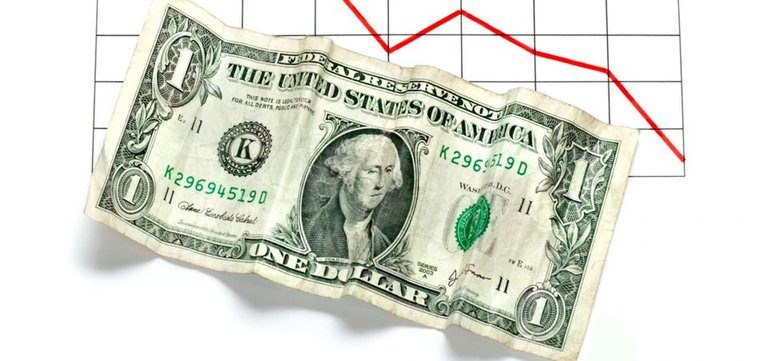Three things that could cause a collapse
Three conditions must be in place before the dollar could collapse. First, there must be an underlying weakness. That situation exists in 2017. The U.S. currency is fundamentally weak despite its 25 percent increase since 2014. The dollar declined 54.7 percent against the euro between 2002 and 2012. Why? The U.S. debt almost tripled during that period, from $6 trillion to $15 trillion. The debt is even worse now, at $20 trillion. The debt-to-GDP ratio is now more than 100 percent. That increases the chance the United States will let the dollar's value slide. That's because it would be easier to repay its debt with cheaper money.
Second, there must be a viable currency alternative for everyone to buy. The dollar's strength is based on its use as the world's reserve currency.
The dollar became the reserve currency in 1973 when President Nixon abandoned the gold standard. As a global currency, the dollar is used for 43 percent of all cross-border transactions. That means central banks must hold the dollar in their reserves to pay for these transactions. As a result, 61 percent of these foreign currency reserves are in dollars.
The next most popular currency after the dollar is the euro. But it comprises less than 30 percent of central bank reserves. The eurozone debt crisis weakened the euro as a viable global currency.
China and others argue that a new currency should be created and used as the global currency. China's central banker Zhou Xiaochuan goes one step further. He claims that the yuan should replace the dollar to maintain China's economic growth. China is right to be alarmed at the dollar's drop in value. That's because it is the largest foreign holder of U.S. Treasurys, so it just saw its investment deteriorate. The dollar's weakness makes it more difficult for China to control the yuan's value compared to the dollar.
Could bitcoin replace the dollar as the new world currency? It has many benefits. It's not controlled by any one country's central bank. It is created, managed, and spent online. It can also be used at brick-and-mortar stores that accept it. Its supply is finite. That appeals to those who would rather have a currency that's backed by something concrete, such as gold.
But there are big obstacles. First, its value is highly volatile. That's because there is no central bank to manage it.
Second, it has become the coin of choice for illegal activities that lurk in the deep web. That makes it vulnerable to tampering by unknown forces. 
Hi! I am a robot. I just upvoted you! I found similar content that readers might be interested in:
https://www.thebalance.com/when-will-the-u-s-dollar-collapse-3305691